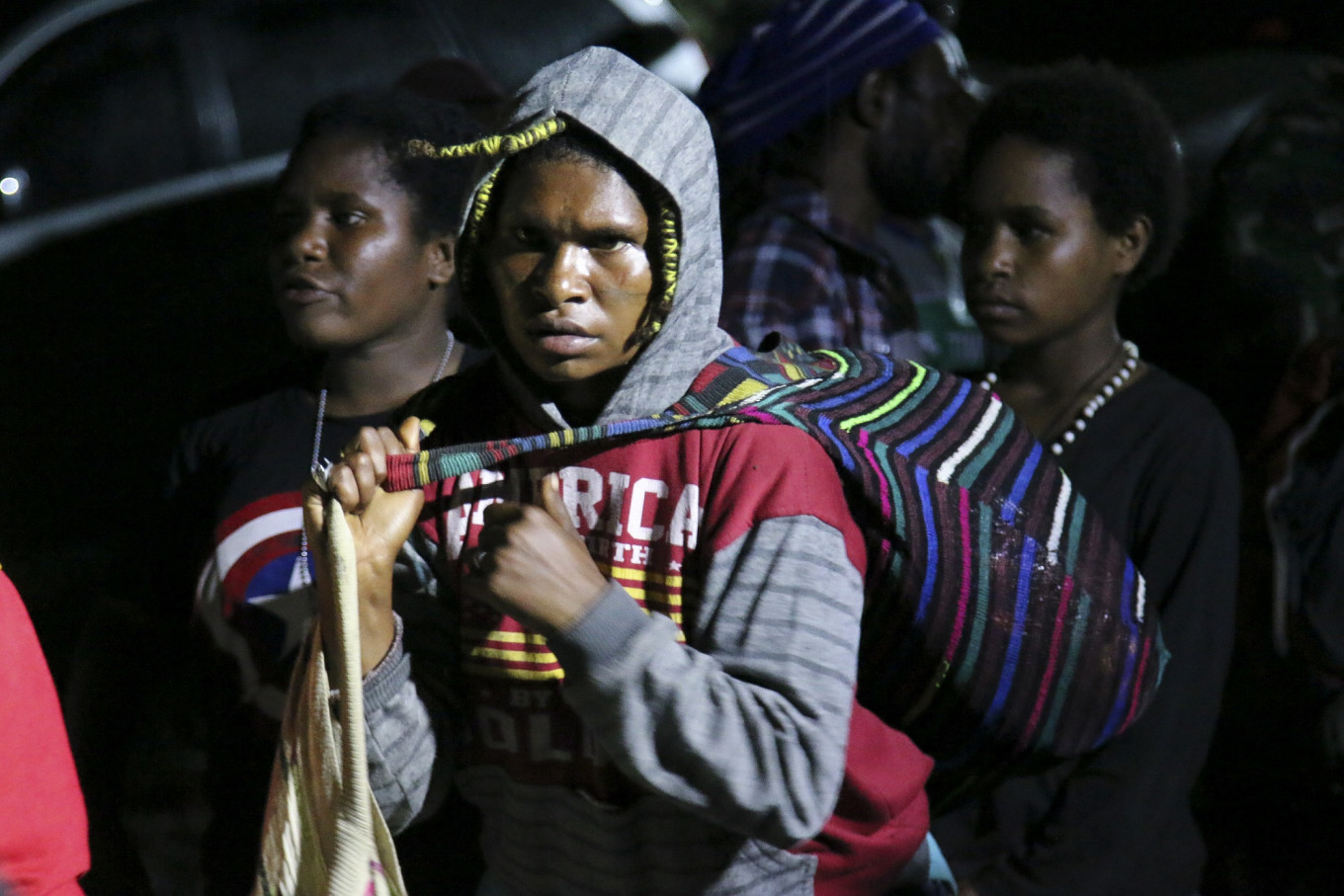TNI will not be given religious role in Papua
Change Size

R
eligious Affairs Minister Fachrul Razi appears to have backed off from a plan to tap into the Indonesian Military’s (TNI) resources to promote religious harmony in Papua and West Papua, following widespread criticism that its involvement could result in more grievances among the indigenous population.
Critics have slammed the minister for trying to involve the TNI in civilian affairs in the country’s easternmost provinces, which has revived fears of military repression and throws the security reform agenda into doubt.
But Fachrul played down the TNI’s involvement on Tuesday during a meeting with the House of Representatives in Jakarta. He insisted the Religious Affairs Ministry was only asking for help to map out logistics.
“We want to seek out additional information in our efforts to improve religious activities in Papua, so we can better ease tensions. It is not our intention to involve the TNI – we only asked them for input,” he said at the hearing with House Commission VIII overseeing social affairs.
“We will focus our attention on houses of worship and religious schools.”
The minister’s comments sought to address concerns raised by a number of lawmakers.
National Awakening Party (PKB) lawmaker Maman Imanulhaq, for instance, took issue with the ministry’s security approach in promoting religious harmony and suggested instead a dialogue-based approach.
“You have working units in the regions such as the KUA [religious affairs offices] but also religious instructors, and they have functioned well,” Maman said during the hearing.
He said that if the TNI took over the mandate of these local working units, it might lead to “artificial harmony” among worshippers.
Maman echoed the sentiments of a coalition of civil society groups, which insisted that the TNI did not have the authority to meddle in religious activities.
“There are no strong or logical arguments for the Religious Affairs Ministry to involve the TNI in a program on religious harmony, because it is a fact that improving religious harmony is more effectively achieved through dialogue than through a repressive approach,” the coalition said in a joint statement last Friday.
“The plan to involve the Indonesian Military in efforts to promote religious harmony in the regions in Indonesia goes against the principles of democracy, human rights and the security sector reform agenda, as well as Law No.34/2004 on the TNI.”
The coalition includes rights watchdog Imparsial, the Legal Aid Institute for the Press (LBH Pers), the Institute for Criminal Justice Reform (ICJR) and the Commission for Missing Persons and Victims of Violence (Kontras).
As the first retired TNI general to assume the role of religious affairs minister after the fall of the New Order regime, Fachrul met with Army officers in Jakarta on June 30 to discuss possible collaboration.
Brig. Gen. Sugiyono, the Army chief of staff’s deputy assistant for territorial affairs, who attended the meeting, said that the ministry invited the Army to take part in its plan so it could mobilize resources in the country’s far-flung regions.
“The ministry wanted to invite priests and dioceses in the region [to take part], but it doesn’t have adequate resources. The TNI has personnel in the regions [who can] help disseminate the proper religious perspectives so that [Papuans] don’t view the government as colonizers,” Sugiyono said.
Indonesian Institute of Sciences (LIPI) researcher Cahyo Pamungkas, who specializes in Papua, said the plan would unlikely address the ongoing tensions in Papua, where local communities see the security forces as part of the problem.
“The conflict [in Papua] is a vertical conflict between the government and the people,” said Cahyo. “The indigenous Papuans want a withdrawal of non-organic security forces because their presence reminds them of tales of past sufferings that are passed down from one generation to the next.”
In a region mired in decades of armed conflict between the TNI and subversive groups, the government’s approach in Papua has consistently stressed security, even though other alternatives have been sought since the onset of democratic reforms in 1998.
During the New Order era, then-president Soeharto rolled out a program known as ABRI Masuk Desa, which deployed military personnel into the regions and at the grassroots level as a means of monitoring and discouraging dissent.
The program was terminated after Soeharto fell from power, but was revived afterward with modifications, invariably sparking criticism.
Military expert Khairul Fahmi from the Institute of Security and Strategic Studies (ISESS) said that getting the TNI involved was bound to have social and security repercussions.
“Involving the TNI is like rolling back the past, where the state was dabbling on the one hand in secularization and religious-moderation propaganda, and on the other going deep into the private domain of faith,” Khairul said.
“It could trigger resistance and potential conflict.”
The Religious Affairs Ministry’s plan is not the first of its kind. In 2015, the TNI teamed up with the ministry for a joint campaign to stop radicalism and curb the influence of the Islamic State movement, by using the former’s platform to spread moderate Islamic teachings.
In 2017, the TNI collaborated with the Public Works and Housing Ministry to continue the legacy of ABRI Masuk Desa with its community service program, TNI Manunggal Membangun Desa (TMMD). Under the TMMD, military personnel are deployed to villages to help develop local infrastructure.
The most recent plan would be the first of its kind to focus specifically on a religious approach, Sugiyono said.
But Fachrul, with his military background, should not confuse the domain of religious affairs with that of security and defense, Khairul said.
“In their operations in Papua, for instance, the military has also incorporated aspects of religious and mentality development, but that doesn’t mean it should ink an agreement with the Religious Affairs Ministry, which certainly has budgetary implications,” he said.









